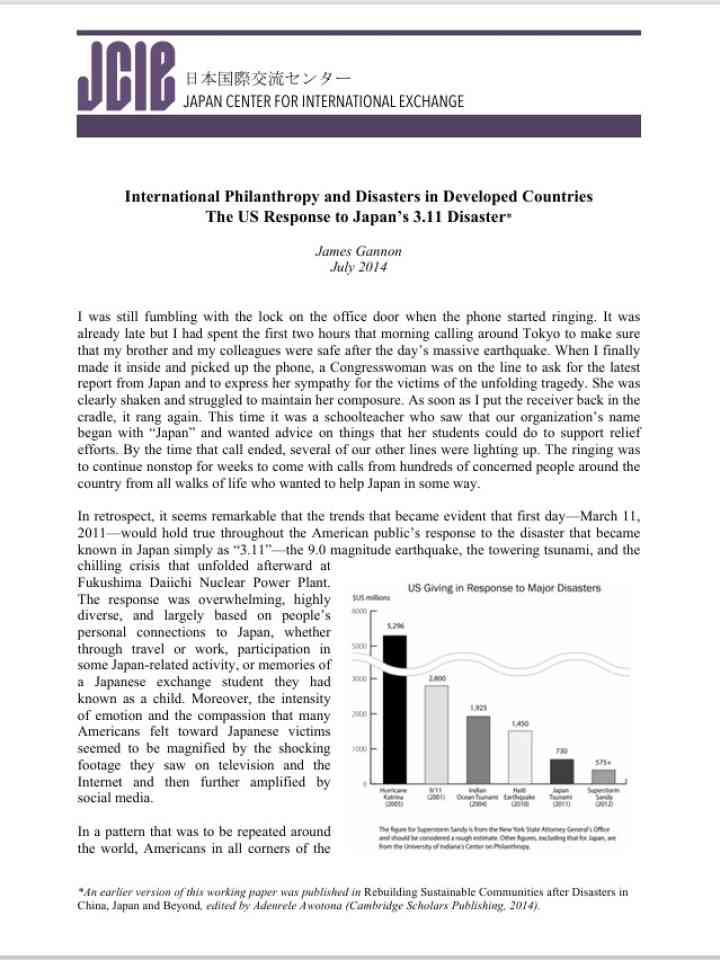International Philanthropy and Disasters in Developed Countries - The US Response to Japan’s 3.11 Disaster
The US response to Japan’s 3.11 disaster was remarkable and demonstrated the compassion and solidarity of the American public.
On March 11, 2011, when the 9.0 magnitude earthquake struck Japan, followed by a devastating tsunami and the Fukushima Daiichi Nuclear Power Plant crisis, Americans mobilized to help. The response was diverse and driven by personal connections to Japan—whether through travel, work, or memories of Japanese exchange students. The shocking footage seen on television and social media further amplified their compassion.
Americans donated nearly three-quarters of a billion dollars for rescue, relief, and recovery efforts in Japan. This ranked as the fifth most generous incidence of private giving in US history for an overseas disaster in another developed country.
The US philanthropic response to Japan’s 3.11 disaster provides valuable lessons for handling megadisasters in other developed countries. It highlights trends reshaping disaster philanthropy and emphasizes the importance of personal connections and emotional impact in driving charitable giving.
Explore further
